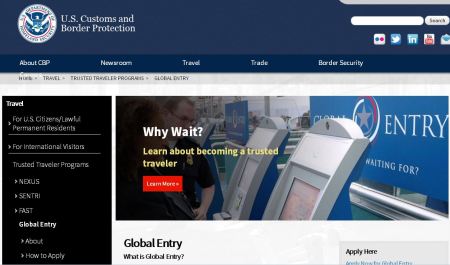 U.S. taxpayers living outside the U.S. are increasingly becoming aware of the long arm of the U.S. tax law. First, more and more individuals overseas are understanding the unique
U.S. citizenship based taxation system. Unique in the world. Second, FATCA and its
breathtaking reach and scope, is also creating greater awareness of the
costs and consequences to U.S. citizens overseas. Third, U.S. federal government has become increasingly more aggressive
with U.S. taxpayers and their worldwide assets more generally. There are limits the government has, both practically and legally, in enforcing U.S. law overseas.
U.S. taxpayers living outside the U.S. are increasingly becoming aware of the long arm of the U.S. tax law. First, more and more individuals overseas are understanding the unique
U.S. citizenship based taxation system. Unique in the world. Second, FATCA and its
breathtaking reach and scope, is also creating greater awareness of the
costs and consequences to U.S. citizens overseas. Third, U.S. federal government has become increasingly more aggressive
with U.S. taxpayers and their worldwide assets more generally. There are limits the government has, both practically and legally, in enforcing U.S. law overseas.A most significant limitation for the government reared its head twice in the last few hours, after two juries came back with acquittals of two separate bankers who were accused of aiding and abetting U.S. taxpayers. They were both employed by non-U.S. banks. These are both major setbacks for the government. No doubt these acquittals will have an impact as the government attempts to pursue U.S. citizens on tax charges who live overseas. One principle strategy of the IRS and DOJ is loud “saber rattling” when focusing on both resident and non-resident individuals. The U.S. tax law is exactly the same for a non-resident USC versus a U.S. resident USC; however, explaining this difference to a jury in a criminal trial will be difficult for prosecutors. The IRS will nevertheless have multiple incentives to continue to aggressively pursue civil actions and civil penalties against these taxpayers. Under U.S. law, the burden of proof for civil penalties is much lower and the costs to the individual of challenging a particular case by the USC or LPR can be high, with significant time invested. The civil arena, where 99%+ of all tax cases reside, is where the IRS will still have significant strategic advantages compared to the taxpayer. The IRS can unilaterally make tax assessments and file IRS prepared “substitute returns” for those overseas USC individuals who do not file U.S. income tax returns.
No comments:
Post a Comment
Note: Only a member of this blog may post a comment.